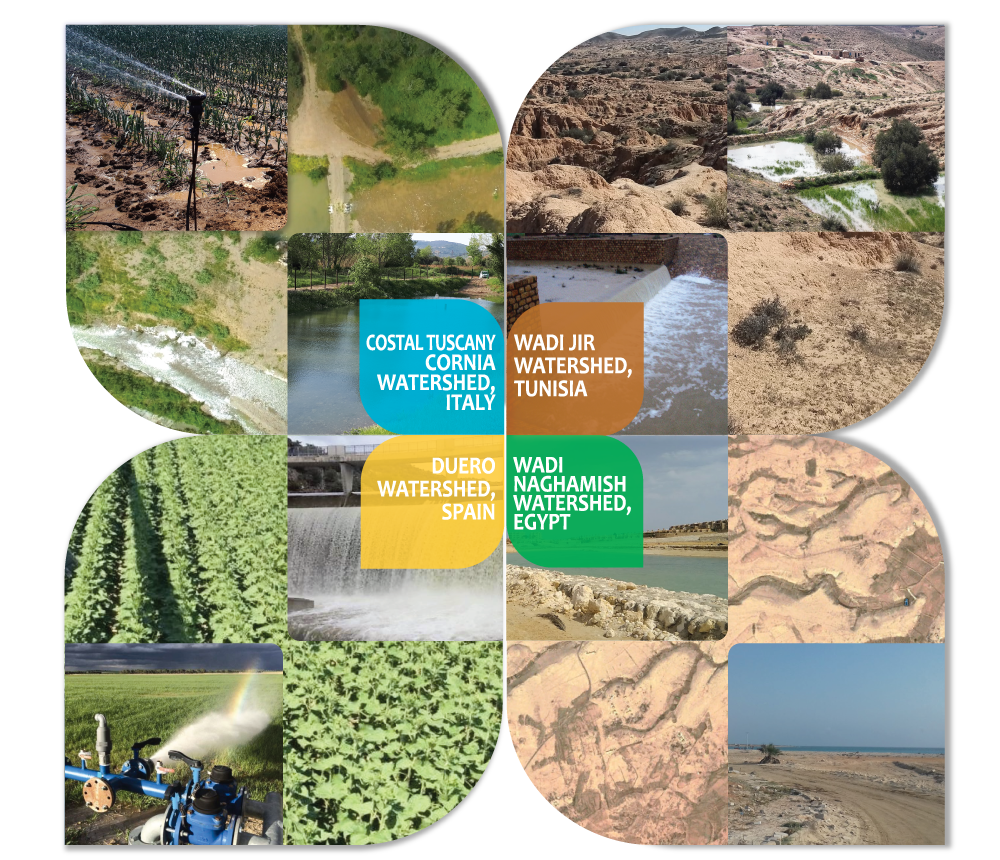About Living Labs
NEXUS-NESS will implement and test the Ecosystem Innovation Approach (EIA) and the NEXUS-NESS Service (NNS) in four selected Nexus Ecosystem Labs (NELs) . 12 major challenges, that are relevant for the WEFE Nexus, were identified. Those challenges will be used for the testing and validation the project solution (i.e. the NNS). The four NELs were selected for their relevance and importance also in relation to the replicability and marketing of the project achievements in other EU and world regions. The 12 grand NLL challenges and a synthesis of the key features that supported the selection of the 4 NELs are inserted in the following table.

| NEL | Challenges | Importance of NEL |
| Italy |
1. Fair use of water resources among utilities and farming sectors 2. Use of non-conventional for agricultural production 3. Boosting the value of ecosystem services for a sustainable management of resources. |
The Italian NEL is proposing a model for sustainable use of resources while assuring food production in coastal environments. Similarities and differences with the Spain NEL of the Duero river basin and the African coastal basins in Egypt and Tunisia can support the identification of methods replicable in Africa and in other parts of the world. |
| Spain |
4. Adapt irrigation strategies to changing climatic conditions 5. Manage water needs and optimize energy costs. 6. Solar, wind and renewable energy sources preserving land and ecosystem functions
|
A Spanish river basin where most of agriculture is based on irrigation driven by subsurface waters pumping and pressurized water distribution. A region where recent agribusiness development characterized significant changes in the regional economy. The socio-economic and WEFE Nexus conditions are similar to many regions in EU and Africa that are challenged by water issues, conflicting economic sectors and natural hazards. |
| Tunisia |
7. Sustainable food production and water stress 8. Water technology and policy innovations 9. Use of renewable energy for irrigation |
The arid Mediterranean Wadi Jir catchment will provide crucial insights to the WEFE Nexus management for other arid regions also considering the complex social and environmental setting of the south-eastern region of Tunisia with unique conditions (e.g. water harvesting, environmental degradation, droughts and demographic change, migrations) |
| Egypt |
10. Optimal and fair allocation of resources 11. Innovative utilization of water for agricultural production 12. Green economy for sustainable production |
One of the largest Wadi (Naghamish) in Northwest Coast of Egypt with a rich and diverse set of water infrastructures (water storage, wastewater treatment plants etc.) provide suitable case for testing innovative water use and reuse also considering technological innovations linked to green economy (renewable energy). |

